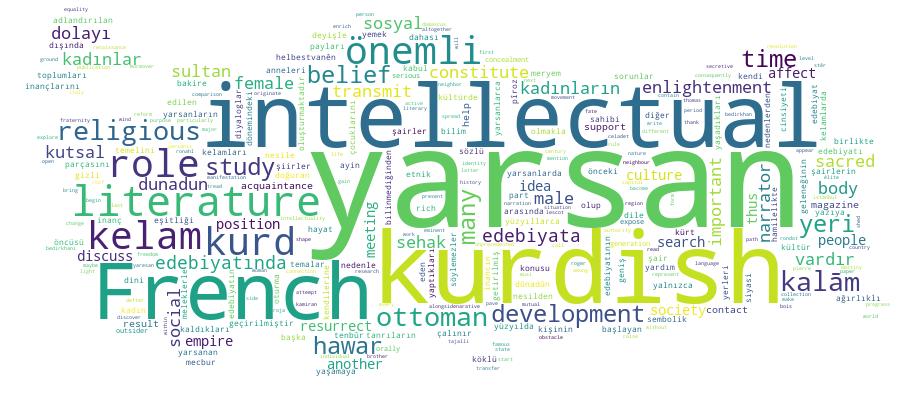Orak Reşitoğlu, Sevda
Loading...

Profile URL
Name Variants
Reşitoğlu, Sevda Orak
Job Title
Araş. Gör.
Email Address
Main Affiliation
Kurdish Language and Culture Programme / Kürt Dili ve Kültürü Programı
Status
Current Staff
Website
ORCID ID
Scopus Author ID
Turkish CoHE Profile ID
Google Scholar ID
WoS Researcher ID
Sustainable Development Goals
17
PARTNERSHIPS FOR THE GOALS

0
Research Products
2
ZERO HUNGER

0
Research Products
5
GENDER EQUALITY

1
Research Products
6
CLEAN WATER AND SANITATION

0
Research Products
13
CLIMATE ACTION

0
Research Products
10
REDUCED INEQUALITIES

0
Research Products
16
PEACE, JUSTICE AND STRONG INSTITUTIONS

0
Research Products
8
DECENT WORK AND ECONOMIC GROWTH

0
Research Products
15
LIFE ON LAND

0
Research Products
3
GOOD HEALTH AND WELL-BEING

0
Research Products
9
INDUSTRY, INNOVATION AND INFRASTRUCTURE

0
Research Products
14
LIFE BELOW WATER

0
Research Products
4
QUALITY EDUCATION

0
Research Products
1
NO POVERTY

0
Research Products
7
AFFORDABLE AND CLEAN ENERGY

0
Research Products
11
SUSTAINABLE CITIES AND COMMUNITIES

0
Research Products
12
RESPONSIBLE CONSUMPTION AND PRODUCTION

0
Research Products

This researcher does not have a Scopus ID.

This researcher does not have a WoS ID.

Scholarly Output
3
Articles
2
Views / Downloads
17/290
Supervised MSc Theses
1
Supervised PhD Theses
0
WoS Citation Count
0
Scopus Citation Count
0
WoS h-index
0
Scopus h-index
0
Patents
0
Projects
0
WoS Citations per Publication
0.00
Scopus Citations per Publication
0.00
Open Access Source
3
Supervised Theses
1
Google Analytics Visitor Traffic
| Journal | Count |
|---|---|
| International Journal of Kurdish Studies | 1 |
| Türk Kültürü ve Hacı Bektaş Veli Araştırma Dergisi | 1 |
Current Page: 1 / 1
Competency Cloud


